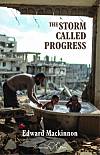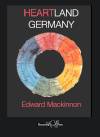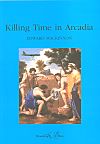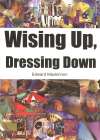On this page you can read some of my own "poetry criticism", a close reading of one poem by each of the following British poets: Stuart Henson, Richard Berengarten, Keith Armstrong (more in the Keith Armstrong Collection at Durham University), Peter Phillips (more about Peter Phillips at poetry p f), Martin Hayes (his Facebook pages) and – two poems in this case – Owen Gallagher (his Facebook pages). In my comments I have tried to show why I value these poems. These are not all "big name" poets, though in my view their work ought to be much better known. They have all published several collections.
HER LONELINESS
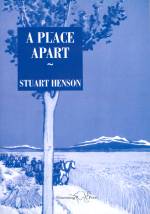
is as big as an iceberg,
as cold, as lifeless,
a huge tear
that froze round her heart
and broke off
and now it goes drifting
away in the long winter dark.
Nine-tenths is invisible.
The ten per-cent is
the meal on the table,
the story at bedtime,
the tight little laugh.
And the rest
is black as the ocean's depth
and malign, and intent
on sinking them both.
Stuart Henson
This poem is taken from A Place Apart, a sequence of poems described by the author as "a love story without a happy ending". A Place Apart tells the story, a quiet tragedy, of two lovers who for obscure reasons are separated by emigration. Her Loneliness is about the woman left behind in England after her lover has emigrated to Canada to become a sheep farmer.
The poem is created, as much of the best art is, out of empathy. The poet empathises with the woman while only hinting at the merest details of her life. But in poetry to hint is better than to state; less is often more. And the simple words, as this poem shows, carry the most powerful emotional charge.
The poem is formed from a single metaphor and a simple structure akin to a sonata, with exposition (loneliness as an iceberg), development (the visible part) and recapitulation (the dark invisible part). A metaphor is an obvious enough device in poetry. But fortunate is the poet who, like Stuart Henson, can find and sustain a metaphor as perfect as the one he uses in this poem. (Read Sunset and Her Secret, two other poems in the sequence, to see the same technique masterfully applied.) No wonder he announces it right at the beginning, though initially as a simile, a more explicit trope than a metaphor: loneliness as big as an iceberg.
An iceberg is probably suggested by the emigrant's crossing to Canada. Apart from that, its coldness makes it an appropriate metaphor. But the poet says as big as, before he says as cold [as]. He wants to tell us how "big" it is. But first bigness and coldness are reiterated in a huge tear that froze, and loneliness is more directly suggested - as separation - by broke off and drifting away.
Now for the bigness. First the smaller, visible part, what we call the tip of the iceberg: the allusions to unremarkable, everyday life (the meal, the table, the story, bedtime) and the understated, diminutivised suffering that is stoically borne: the tight little laugh.
Then the huge, invisible part, and a return, in the last four lines, to the image in its elemental starkness, though now more malevolent and threatening: black (a recapitulation of the long winter dark), ocean's depth, malign, intent on sinking them both.
A bleak climax to a poem about sorrow.
As I have already said, this poem, like most of the others in the sequence A Place Apart, is founded on empathy, a particular form of sensitivity. To be human means to possess this quality to a greater or lesser degree. Its perfect realisation in poetry is a form of beauty. Such a poem makes exegesis almost superfluous.
THE BLUE BUTTERFLY
On my Jew’s hand, born out of ghettos and shtetls,
raised from unmarked graves of my obliterated people
in Germany, Latvia, Lithuania, Poland, Russia,
on my hand mothered by a refugee’s daughter,
first opened in blitzed London, grown big
through post-war years safe in suburban England,
on my pink, educated, ironical left hand
of a parvenu not quite British pseudo gentleman
which first learned its untutored messages
among Latin-reading rugby-playing militarists
in an élite boarding school on Sussex’s green downs
and against the cloister walls of puritan Cambridge,
on my hand weakened by anomie, on my
writing hand, now of a sudden willingly
stretched before me in Serbian spring sunlight,
on my unique living hand, trembling and troubled
by this May visitation, like a virginal
leaf new sprung on the oldest oak in Europe,
on my proud firm hand, miraculously blessed
by the two thousand eight hundred martyred
men, women and children fallen at Kragujevac,
a blue butterfly simply fell out of the sky
and settled on the forefinger
of my international bloody human hand.
Richard Berengarten
At a museum in Kragujevac that commemorates a massacre of Serbian civilians by the Nazis in 1941, a blue butterfly settled on Richard Berengarten’s hand.
After he returned to England, Richard Berengarten* says, the poem “The blue butterfly” then “wrote itself”.
On subsequently being given the opportunity to go and work in Yugoslavia, Berengarten delved into the history of the Nazi occupation of Serbia and researched the massacre at Kragujevac. The result was the book The Blue Butterfly, a deeply empathetic commemorative sequence of poems plus documentation on the massacre.
The poetic device that drives this poem is known as synecdoche, a figure of speech in which a part stands for the whole, in this case a hand signifying a human being.
Apart from the three-line stanzas, the repetition of the words “my hand”, used in every stanza but one, is the main structuring element of the poem. The poem charts a journey of the hand, progressing from the particular – “my Jew’s hand” (more particular than “my Jewish hand” and also more resonant with a history of prejudice and oppression) – to the general – “my international bloody human hand”.
This is a journey from Eastern and Central Europe to England and then to the Balkans, from oppression to a privileged safety and then back in time to World War II and a crime against humanity. Although the poem has associations that go beyond Europe (the Second World War itself, British militarism and the seventeenth century Puritanism of Cambridge that evokes North America), this is a poem that is rooted in Europe. The centrality of Europe to this poem is encapsulated in its only metaphor: “like a virginal leaf new sprung on the oldest oak in Europe”.
This metaphor, the only one in the poem, conjoins present and past, the living and the “living” dead (the dead have been seen alive, in the words of Sorley MacLean). At the same time it suggests the sense of redemption that the poet sees in the meaningful coincidence of the butterfly landing on his hand at the site of a Second World War massacre of civilians.
This “visitation” is a miraculous blessing bestowed on the poet by the dead. The “trembling” hand suddenly becomes “firm” and – the culmination of the hand’s odyssey – becomes international, bloody and human. Anger and protest are contained and transcended in the poem’s last line, which expresses an internationalism that is neither abstract nor vague.
I could have written much more here. However, a poem as good as “The Blue Butterfly” can best speak for itself. It is a part of a truly outstanding collection.
* The first publication of The Blue Butterfly appeared in 2006 under the name Richard Burns. Since then the poet has repossessed his ancestral name.
AT ANCHOR
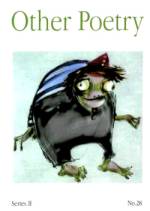
Birds hurl themselves at the leaping Tyne;
I catch them through the evening window.
It is cold for the time.
My throat is stuffy with poems left unsaid.
Weary troubadour I am,
swimming with visions of ancient European tours.
Now I have landed, with my seagull wings, in Haydon Bridge
to honour a famous son.
I am lodged in the Anchor Hotel,
another lonely night of a whirlwind life:
lorries howl around me
and I can hear a village trembling
in the blinding dark.
Restlessly at anchor,
I cannot sleep for the ghost of John Martin
lighting up my room
with dynamic visions
and the thunderous clatter of his wild dreams.
Stuck in the rut of my own poetry,
I force myself to sleep,
bobbing by the river,
under the fantastic sky.
The community lights shine on my imagination,
and the screams of swifts
make a life worthwhile.
Keith Armstrong
We can call this an occasional poem: the poet is visiting Haydon Bridge, presumably to give a reading in connection with celebrations of the locally-born painter and engraver John Martin, one of Victorian England's most popular artists, known for his biblical, apocalyptic themes.
The poet's literal and figurative starting point, from which the title derives, is the place where he is staying in Haydon Bridge: I am lodged in the Anchor Hotel. The word lodged suggests motionlessness, settledness, a state of being at rest. Two other past participles - landed and stuck - reinforce this impression, but every other verb in the poem is suggestive of movement, activity, noise. This tension is perfectly rendered by the almost paradoxical phrase restlessly at anchor.
It is one of those moments when we are alone and confronted with our loneliness; a moment of self-questioning. The poet, a veteran of the poetry-reading circuit at home and abroad, is a weary troubadour, his throat is stuffy with poems left unsaid, he is stuck in the rut of his own poetry.
What is this mood? World-weariness? Where does it lead? To existential doubt, a turning inwards on oneself and away from the world?
No, for this poet, self-contemplation is not detachment from, but involvement in, the world. Alone in his hotel room, he is not going to wrap himself in a blanket of solipsism. If he is unable to sleep, this is due not so much to extraneous disturbances, but because the ghost of John Martin is lighting up his room, filling it, in lieu of the sleepless poet's own dreams, with the thunderous clatter of his wild dreams.
The poet's thought processes reflect an activity, movement and noise that is everywhere around him: he is swimming with visions, while birds hurl themselves, swifts emit screams, and - anthropomorphism abounds - the river is leaping, lorries howl, and the village is trembling. Even when at last he forces himself to sleep, he is still not at rest, but like an anchor is bobbing by the river.
Or should that be: like a bird? The poem starts and ends with birds, and the poet, the travelling troubadour who has toured Europe like a migratory bird has momentarily landed with seagull wings, and sleeps under the fantastic sky.
Nature - birds, river, sea, whirlwind, thunder, sky - becomes conflated with human society in this hotel room. The thematic first line announces a reciprocity of action that tells us a lot about the poet's mindset. This is a poet in the community - "community" not in that over-used sense of the word as a description for any agglomeration of tenuously related people, but in the sense of a particular place, a particular history, a particular tradition. This is a poet whose essence is interaction with the world: The community lights shine on my imagination.
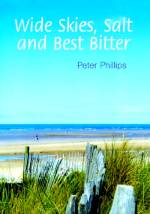
HORSE
Grey horse standing in a field.
What is your name?
As I stare, I feel your heat
warm under my palm.
Look at me horse.
Blow me a kiss.
Peter Phillips
Alan Dent, the publisher of The Penniless Press, has written of "that self-regarding look-at-me-ism which lurks just beneath the surface of so much contemporary poetry". That Peter Phillips actually uses the words Look at me in this poem is ironic, therefore, because he is drawing our attention not to himself, but beyond himself to something of universal significance.
A man beholds a horse. There is an indeterminate distance between them. The man does not know the horse's name. The horse is not looking at the man. The starting point of the poem, then, is physical separation, involuntary detachment.
Man and horse do not touch. Only the sense of sight comes into play. (I stare). The physical contact that is mentioned - I feel your heat/ warm under my palm - is not really "felt" at all. It is imagined. But what is imagined is "real" enough. It gives rise to desire - expressed in the two imperatives of the final couplet - for a rapport with the sentient fellow-creature that is looking away: Look at me/Blow me a kiss. Blowing a kiss is the perfect expression of "touching" without physical contact; it is visualised touch.
The heat/warm enjambement forms the centre of the poem, literally and figuratively. Lesser poets would have opted for a more "unusual" word after heat and the poem's impact would thereby have been lessened. The semantic closeness of heat and warm provides exactly the right emphasis, as well as a nice ambiguity (warm can be either adjective or verb - the heat may be strongly felt or may increase in strength under the poet's gaze).
Horse shows that a good poem does not necessarily need a lot of special effects. It contains scarcely any rhetorical figures. Its resources are simple: three couplets, consisting of 1. a statement - pared down, no definite article with "horse" and only the adjective grey - and a question, 2. a description of a subjective mood, containing a a metaphor that is scarcely a metaphor, and 3. two imperatives.
If there is any "special effect", then it is the second imperative of the last couplet. Both imperatives are optative - not so much a command as a plea, a wish for a rapport with the unknown creature. The second one ends the poem on a note of incongruousness, absurd anthropomorphism and sad humour: a horse blowing a kiss. This is the kind of estrangement that is basic to the art of poetry, a simple effect that is difficult to realise.
Peter Phillips's Look at me is not self-regarding, despite the preponderance of the first person singular, as subject and object, and the first-person possessive pronoun. It is about separation and the desire for rapport. It is saying: Look at us.
THE MEN I WORK WITH
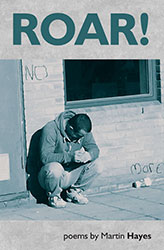
a man I work with
cries every time it gets too busy
throws his head back onto his fat neck
and stares up into the ceiling
all the while muttering under his breath
how thankful he is that he still has a job
and hasn’t been allowed to die yet
a man I work with
goes home every night to make Airfix models
only to hang them from his ceiling
or spread them out across his attic floor
reenacting the battle of Midway
or the siege of Leningrad
talking all day about historical wonders
and what men and women have been capable of before
a man I work with
goes to the toilet every hour
to snort himself out
and comes back
like a Viking halfway through raping himself through a village
only to administer a master class in controlling
that textbooks could be written about
a man I work with
gets so drunk in the nights after his shifts have finished
that when he comes in for work the next morning
he looks as small as a little death rattle
rattling away at his keypad
with eyes that shine through his pain
and a smile on his face
that has no right to exist
the men I work with
haven’t written any great books
that everyone talks about
they haven’t painted any great pictures
or composed a symphony
that can bring a tear to the eye
but they have worked for years doing 11-hour shifts in a dead-end job
they have spent years getting screamed and shouted at by supervisors
so that those supervisors could feel like they were 8 feet tall
they have spent years tapping away at keypads
sending instructions to couriers to drive their big vans to recently shutdown offices
to remove desks and chairs still warm from the redundant arses
that used to sit on them earning just enough money to pay their rent
years spent tapping away at those buttons
sending instructions to couriers to whizz through the streets
to collect the blood of a £500 an hour private healthcare patient
and deliver it to a lab so the results can be returned within 45 minutes
as 83-year-old women die in corridors waiting for an extra blanket
years tapping away at those buttons sending instructions
for men to go and pick up the forgotten hat of a pop star
the forgotten shawl of a millionaire actress the forgotten
shoes of a £1,000 an hour model the forgotten bow tie of a CEO
only to drive like lunatics through the streets risking their lives
just so they can get them back into their soft hands
years spent making sure that the documents and contracts of the Great companies
arrive before the deadline
so that padlocks can be snapped shut on the doors of a factory for the last time
and playgrounds in which they grew up
in which they drank their first can of beer smoked their first cigarette in
played kiss and chase in
can be turned into building sites where cranes will raise yet another block of
luxury flats
up out of the Earth
these men I work with
who haven’t written any great books
painted any great pictures
composed any symphonies
but who
just by the act of living and carrying on
being controllers
help keep the world up in the sky
the birds on wires singing the soil moist in a pair of hands
the flowers and stars burning bright with meaning with those smiles
that have no right to exist
a million times more genuine and stirring
than any of those great pieces of art
could ever be
Martin Hayes
Martin Hayes writes predominantly about employment in the courier business. Despite the fact that the kind of environment he describes is everyday reality for millions of people, this is untypical of contemporary poetry. He is definitely not one of those poets who, as he puts it, “write about the smell of their dead fathers’ tweed jackets”.
The courier business is a hierarchical world of senior executives, supervisors, controllers and couriers. It is a world of estranged labour and familiar absurdity, of exploitative routine and stress, of workers struggling with debt and fragile personal relationships, of crude banter as a vehicle of self-preservation, of living with the fear of losing one’s job, living with the paradox that “we …. don’t know or understand why/this job we all despise/means so much to us”(in between Stockholm Street and Syndrome Way).
Fear of losing their jobs is the only thing that gives rise to solidarity among the employees of the courier business where Hayes works. Otherwise they are often shown in a rather unflattering light — because this poetry is thoroughly and consistently realistic. What prevents it from being depressingly so, is the poet’s recognition of what it means to hold on to one’s humanity. In the poem quoted here this is encapsulated in the formulation (repeated near the end of the poem) of “a smile that has no right to exist”. This phrase perfectly sums up, better than any high-flown abstraction about human dignity, what it means to survive against all odds in a demeaning workplace. It is a paradox. And the truth is paradoxical.
It takes a paradox like this to persuade us of the poet’s argument in the men I work with that life, more particularly the life of these men, is more important than art. And it is this kind of essentially philosophical insight, together with the poet’s sense of structure and iterative rhythm, that makes Martin Hayes’s poems resonate. It is because of this, ultimately, that his poems tell us so much about how our society and economy work.
A COMMON HISTORY
Here in “Little India”, Southall,
beliefs run deep as the Ganges.
Events abroad can cause a flood at home.
In our classroom, infants trickle in,
they converse in Punjabi, Hindi, Gujerati.
I’ve lost my Irish tongue.
Thoughts and flags are raised like sails.
Their minds are stuffed with cargo,
hauled through choppy seas.
At home time, mums appear in saris,
steer them back into mother tongues,
sprinkle palms with Indian sweets.
Their children are pulled between
banghra and pop, salwars and Levis,
black or white skins.
Here I’m an outsider. My past flows
like the Clyde through “Little Ireland”,
Gorbals, where I feared I’d drown.
Owen Gallagher
THE UNOFFICIAL EXHIBIT

The one-armed soldier’s hand extends, not
for him to be hauled back from where he has,
in the past, fallen, or to be shaken, but
to beg for loose change. His beret lies
empty. A platoon of six-year olds spy
his medals, leave sandwiches and crisps,
salute and march into the Museum of War.
The streets of London are paved with ex-soldiers,
from the Falklands to Afghanistan,
in hand to hand combat with themselves.
They are concussed by war. No truce
or curfew is declared. There is no bandage
to cover memory. Each night they are positioned
at the bins of restaurants, cat-nap with
their nightmares in doorways.
At dawn they tour the city with upturned
palms. The soldier’s memory is the enemy.
It is lined with booby traps. He has no words
to fire. An official of the Museum presents
visitors on leaving with a questionnaire:
‘Improving Service and Exhibits’.
Owen Gallagher
In this age of mass migration it is a common situation for people to have two or even more national and cultural identities. The title “A Common History” could be understood in this sense, though the primary meaning is that of a shared history between those who have emigrated, between the Indians of Southall and the Irish of the west of Scotland.
The poet’s sense of being an outsider in Glasgow is implied in the last line of the poem, his sense of being an outsider in Southall is stated. Why is he an outsider any more than those who have come to England from the Indian sub-continent? Because he has “lost [his] Irish tongue”, whereas the Indian children in Southall retain two identities through language. The poem, notwithstanding its economical detailing of Indian life in Southall, is ultimately personal. It is about this sense of loss.
Immigrants are often described as having their “roots” elsewhere, but Owen Gallagher uses water rather than soil as a metaphor to plot a course from the “Little India” of Southall to the “Little Ireland” of the Gorbals district of Glasgow. It is a progression from one great river of immigration and emigration to another, to the place where the poet feared he would “drown”. A sustained metaphor (Ganges, flood, trickle, sails, cargo, seas, steer, sprinkle, flows, the Clyde, drown) structures the poem and carries its meaning.
In “The Unofficial Exhibit” the poet is equally adept at sustaining a metaphor. However, whereas the first poem, while describing Southall, is essentially about the poet himself, here there is no “I “ and the poet is only an observer, an observer of a different social phenomenon.
The poem starts with a description of a disabled soldier reduced to beggary, juxtaposed with passing boys on their way to the War Museum. The second stanza moves from the particular to the general, from an individual soldier to a collective of ex-servicemen who have fallen on hard times or, more accurately, have been pushed into destitution, signaled by the arresting line “The streets of London are paved with ex-soldiers”. Metaphors of war follow the military metaphor of the first stanza (“a platoon of six-year olds”) and continue in the third stanza, before the poem returns to the War Museum and ends on a note of irony. The word “service” in the last line has connotations of military service, but also represents the typical impersonal language of a corporate mission statement; while “exhibits” refers back ironically to the sad human “exhibit” on the capital’s streets.
We know the statistics about ex-soldiers and homelessness, but statistics are one thing and the empathy that this poem conveys is another. It takes us into the ex-soldiers’ minds in which war is embedded.
© Edward Mackinnon 2007-2018
Her Loneliness © Stuart Henson:
from A Place Apart, published by Shoestring Press, Nottingham, UK, 2003
At Anchor © Keith Armstrong:
from Other Poetry Series II no. 28
Horse © Peter Phillips
from The Rialto no. 55
Horse is one of a sequence of poems included in Wide Skies, Salt
and Best Bitter, Peter Phillips, published by Hearing Eye, (ISBN: 978-1-905082-03-2)
Available from Hearing Eye or from Central Books
The Men I Work With © Martin Hayes
from Roar!, published by Smokestack Books 2018
A Common History © Owen Gallagher
from Sat Guru Snowman, published by Peterloo Poets, 2001
The Unofficial Exhibit © Owen Gallagher
from Tea with the Taliban, published by Smokestack Books, 2012
Poems reproduced here by permission of their authors.
